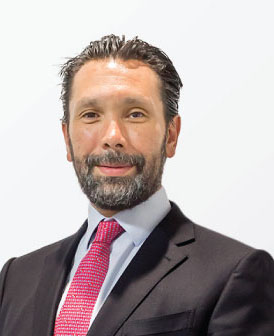Transparency and accountability are paramount for a robust energy sector, Professor José Rinkenbach told a gathering last week Thursday when the University of Guyana (UG) hosted its latest Turkeyen and Tain Talks.
The topic was “Energy for Guyana: Renewable Energy, Oil, Gas and Guyana’s Green Future” and the event featured a panel of eight speakers.
In addition to Rinkenbach, who is Professor of Corporate Finance and Energy Investment at ITAM and CBMEX in Mexico, the panel comprised Mahender Sharma, head of the Guyana Energy Agency (GEA); Devon Gardner, CARICOM Energy Programme Manager; Verlyn Klass, of the Department of Electrical Engineering of UG; Mark Bynoe, Head of the Department of Energy; Vishal Persaud, Head of the Mechanical Engineering Department of UG; Arizona State University (ASU) Professor Sayfe Kiaeip, Professor in the School of Electrical, Energy and Computer Engineering, the Director of the Connection One Center (NSF I/UCRC Center), and Motorola Chair in Analog and RF Integrated Circuits; and Professor Gary Dirks, Director of the Ann Wrigley Global Institute of Sustainability and Professor at the Arizona State University.
According to Rinkenbach, who hails from Mexico, his country has learnt numerous lessons in the last decade as it relates to effectively managing the energy sector and making it productive and sustainable.
He emphasised that one of the most important lessons that they have learnt is that transparency and accountability are critical issues for the sector, and making contracts public eventually becomes paramount as it gives way to robust systems that not only protect the government but also the companies involved.
He said that in order to ensure that there is a robust regulatory framework to manage the sector, there are three key elements, planning, regulation and operation, which have to be done by different agencies that are financially and operationally autonomous.
Rinkenbach also noted that focus must be placed on national content, and while there is normally a focus on developing factors, developing people must also be a priority.
“A lot of breakthroughs being experienced around the world is in AI [Artificial Intelligence], where you make more optimisation on algorithms etc… and that has to do with software, with people, not hardware. Focussing only on national content tends to have a focus on the past, you need to look at the future,” he said, while emphasising the need for a free flow of information.
The other presenters focussed on diversifying the energy sector with renewable sources, and according to Sharma, the energy matrix of the future must incorporate oil and gas as well as hydro, solar and wind power.
He pointed to efforts to install solar panels on the rooftops of government buildings and in some hinterland locations. However, he said the issue with solar power is the intermittent and uncontrolled intensity of the sunshine that powers the photovoltaic cells coupled with the high costs to procure energy storage systems, such as batteries.
“We’ve been talking about wind but wind is also very site specific and unfortunately we need long term data to make wind a justifiable case. We need at least 12 months of data and assuming that works then you have also the opportunity to use wind but it’s also intermittent…,” he also said, while stressing the importance of energy efficiency.
Bynoe, on the other hand, emphasised the need to have a business case and the financing to decide the direction the country moves in diversifying the energy sector.
He said Guyana’s recent hydrocarbon discoveries, their development, production and revenues generated have the potential to truly place the country on a sustainable development pathway, which he said comes at an opportune time when the country is pursuing the Green State Development Strategy.
He added that energy is not an end in itself, but it is what can be used to transform the lives and livelihoods of all Guyanese going forward.
Bynoe also noted that with increasing temperatures due to global warming, there will be a need for more cooling effects, which will increase the demand for more energy.
Dirk also noted that the energy system is going to have to target zero emissions and not 100% renewable as fast as possible since there are going to be carbon taxes in the future.
“Carbon taxes is coming and anyone thinking and planning for energy has to take that into account, specifically Guyana. I think this adequately summarises an extraordinary opportunity to take advantage of the rich natural resources. There is an extraordinary opportunity to use the resources that you have to stimulate a broader growth in the economy, and the economy of Guyana must grow,” Dirk said.








